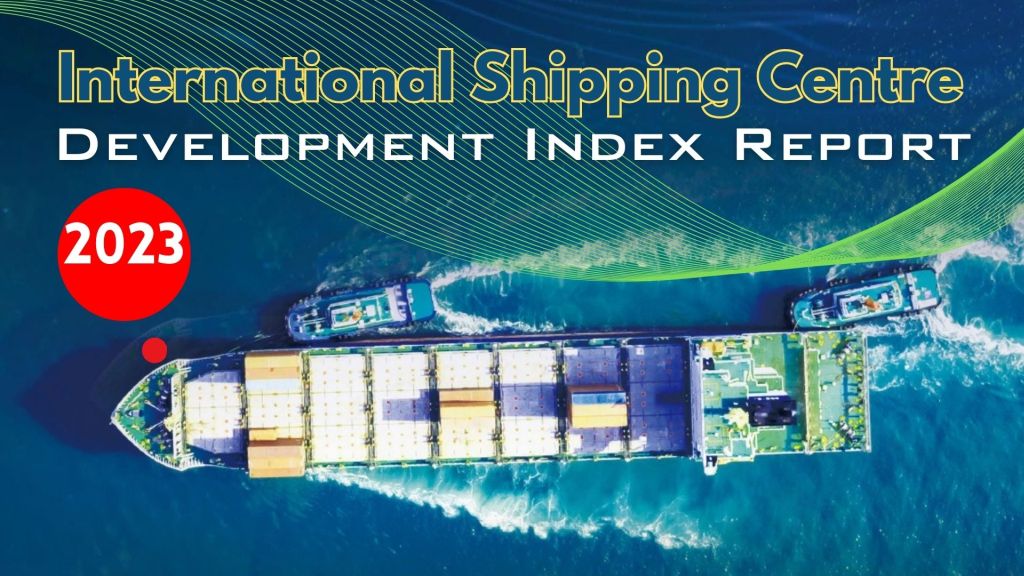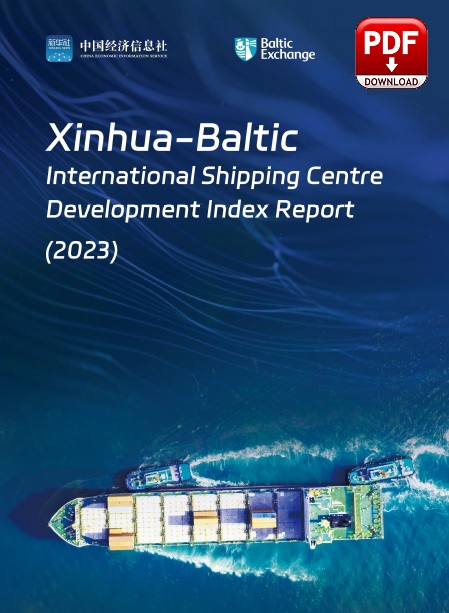
(www.MaritimeCyprus.com) This year marks the tenth anniversary of the Xinhua-Baltic International Shipping Centre Development Index (ISCDI) produced by China Economic Information Service, a subsidiary of Xinhua, in collaboration with the Baltic Exchange. Once again this index has ranked the 43 top port cities and maritime centre around the world, using a variety of metrics.
These metrics cover all aspects of a shipping-centred environment, including business factors covering a number of professional maritime service providers such as lawyers, financiers and shipbrokers; port factors such as cargo throughput, draught and container berth length; as well as assessments of the general business environment including customs tariffs and logistics performance.
Whilst there is little movement on the first five of the top 10 rankings this year - Singapore sits at the top of the pile for the tenth consecutive year – it's all changed in the last three
rankings. New York/New Jersey dropped two places from eight to tenth this year, as the historical shipping centre of Athens nudges back up by one place to eighth and space is made for relative newcomer, Ningbo Zhoushan, to sit at number nine.
For the main three shipping segments – dry, liquid bulk and containers - each tell a different story. The container shipping market has normalised over the past year, following an extraordinary increase in demand during COVID-19. Increased oil demand and longer trade routes have buoyed tanker shipping, whilst dry bulk freight rates remain soft.
All three sectors will be impacted by the most recent International Maritime Organization (IMO) greenhouse gas (GHG) reduction ambitions, which were announced at the beginning of July. At present, how the industry will reach net-zero by 2050 is unknown, but it will likely be supported through low-carbon fuels - the landscape for which remains unclear.
We hope this report provides some useful insight into ocean-going shipping and the maritime centre supporting the industry that moves 90% of world trade. Huge congratulations to Singapore, as well as London and Shanghai for securing second and third places respectively in this Index, and we commend all the locations covered in this report.
Whilst Singapore has sat at number one since the Index began, Shanghai has ascended from seventh place in 2014, to third place this year. Hong Kong is still amongst the top five centre and the large Chinese container port of Ningbo Zhoushan entered the top 10 in 2021 and has ambitions beyond the port to become a recognised maritime services centre.
Shipping will always be at the mercy of international trade relations and economic and geopolitical conditions. The current outlook is turbulent as energy trade flows alter course and bulk cargo shipping faces an uncertain path ahead, for the foreseeable future at least.
Against this backdrop, the shift of trade from west to east for containerised goods shows no sign of slowing. I look forward to observing these trends through the lens of the Xinhua-Baltic ISCDI in the years to come.
Meanwhile, the traditional shipping hubs of London, Hong Kong, Athens, Hamburg and New York still feature in the top 10 and are testament to the solid foundations that these Maritime centre have built over the decades.
London and New York still command a presence in maritime services circles, particularly in the insurance and arbitration sectors. Hamburg remains a strong maritime centre and Germany a major shipowning nation. Meanwhile, Greek shipowners continue to control the largest share of the merchant fleet.
Despite the international nature of the maritime industry and the uptake of digital solutions, it seems that physical location still matters. All centre that feature in the top 10 have their own strengths, but equally, they all have the necessary infrastructure to attract and retain business. Many are desirable locations to live in, have access to talent and provide a range of services to shipowners and charterers. Whilst some boast a huge transhipment port, others may offer world-class legal finance, legal, shipbroking, IT and classification services.
The Index is built on numerous datasets to offer an independent benchmark of maritime centre across the globe and the report is a reflection of how all these aspects of shipping come together to support global trade.
For more details click on the image below to download the full report:
Source: The Baltic Briefing














